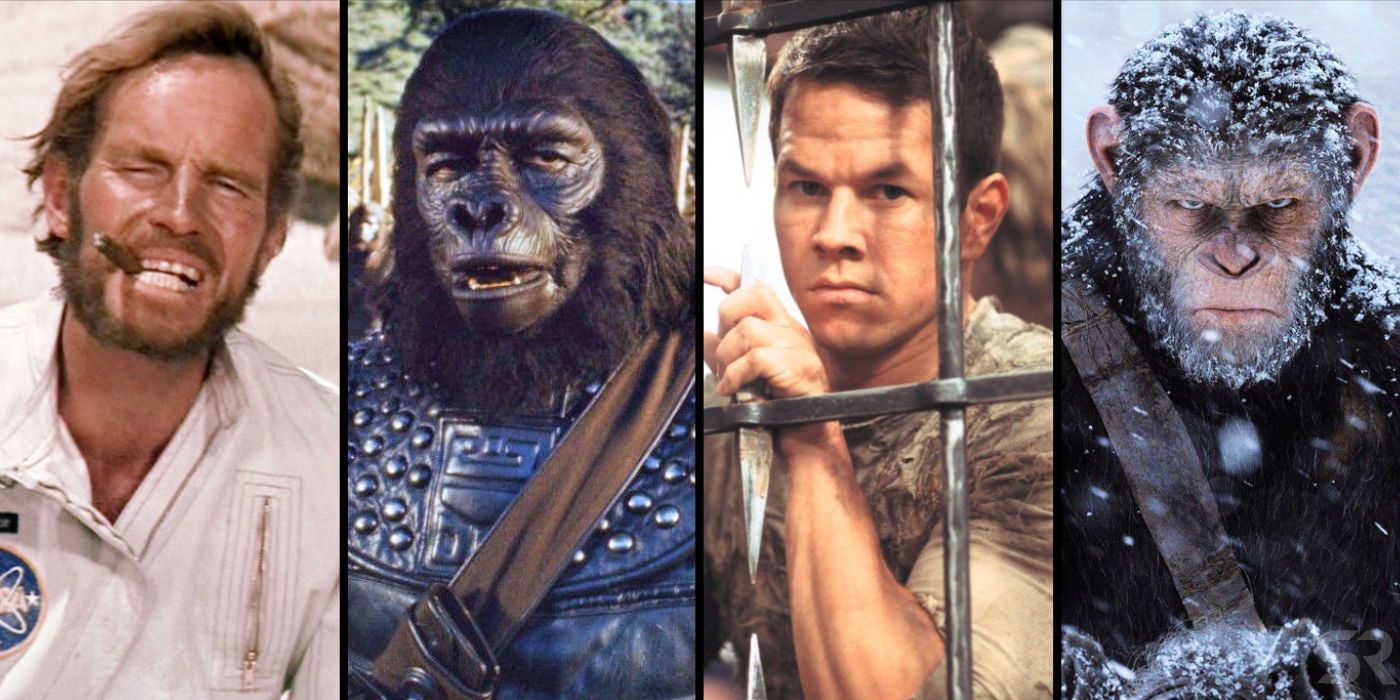From its humble beginnings in the 1960s to its modern reimagining, the "Planet of the Apes" franchise has captivated audiences with its thought-provoking narratives and groundbreaking visuals. Over the decades, the series has not only entertained but also sparked conversations about humanity, evolution, and the ethical treatment of animals. With each installment, filmmakers have pushed the boundaries of storytelling, utilizing innovative technology and compelling performances to bring their vision to life. This article will take you on an in-depth journey through the "Planet of the Apes" cinematic universe, examining all movies that have contributed to its enduring legacy.
The "Planet of the Apes" series began as a groundbreaking science fiction film based on Pierre Boulle's novel, and it has since evolved into a multi-faceted franchise that includes sequels, reboots, and spin-offs. Each film not only builds on the established lore but also offers new perspectives and insights into the complex relationship between humans and apes. As we delve into the various films, we will explore their themes, production details, and cultural impact, solidifying the franchise's place in cinematic history.
Join us as we uncover the rich tapestry of the "Planet of the Apes" saga, examining the plotlines, characters, and the evolution of its cinematic techniques. Whether you are a long-time fan or a newcomer to the series, this comprehensive overview of "Planet of the Apes all movies" will provide you with a deeper understanding of what makes this franchise so special.
What Are the Key Movies in the Planet of the Apes Franchise?
The "Planet of the Apes" franchise is comprised of several key films that have shaped its narrative and themes. Below is a list of the primary movies in order of their release:
- Planet of the Apes (1968)
- Return to the Planet of the Apes (1970)
- Escape from the Planet of the Apes (1971)
- Conquest of the Planet of the Apes (1972)
- Beneath the Planet of the Apes (1970)
- Planet of the Apes (2001)
- Rise of the Planet of the Apes (2011)
- Dawn of the Planet of the Apes (2014)
- War for the Planet of the Apes (2017)
How Did the Original Planet of the Apes Film Change Cinema?
The original "Planet of the Apes" film, released in 1968, marked a turning point in science fiction cinema. With its innovative makeup effects, compelling narrative, and social commentary, it set a new standard for the genre. The film was groundbreaking not just for its visuals but for its exploration of themes such as civil rights, the consequences of war, and the nature of humanity.
Charlton Heston's portrayal of astronaut George Taylor brought a complex character to life, grappling with the realities of a world turned upside down. The film's iconic twist ending, revealing that the planet was, in fact, Earth, left audiences stunned and prompted discussions that would resonate for years to come.
What Makes the Modern Trilogy Stand Out?
The modern trilogy, consisting of "Rise," "Dawn," and "War for the Planet of the Apes," has been lauded for its impressive storytelling and advanced visual effects. Directed by Rupert Wyatt and Matt Reeves, these films have redefined the franchise, offering a fresh take on the origin story of the apes. They utilize cutting-edge motion capture technology to create lifelike performances from actors such as Andy Serkis, who portrays Caesar, the intelligent ape at the heart of the story.
These films delve deeper into the emotional and moral dilemmas faced by both humans and apes, exploring themes of power, survival, and what it means to be sentient. The trilogy's success has not only revitalized interest in the franchise but also raised the bar for future science fiction films.
What Are the Major Themes in Planet of the Apes All Movies?
The "Planet of the Apes" franchise is rich with themes that challenge audiences to reflect on societal issues. Some of the major themes include:
- Evolution and Humanity: The series questions what it means to be human and the moral implications of scientific advancement.
- Power and Corruption: The films explore how power can corrupt individuals and societies, leading to oppression and conflict.
- Ethical Treatment of Animals: The franchise raises awareness about the treatment of animals and their rights in society.
- Survival and Coexistence: It highlights the struggle for survival and the possibility of coexistence between different species.
Who Are the Key Characters in Planet of the Apes All Movies?
The "Planet of the Apes" franchise features a diverse cast of characters that have left a lasting impact on audiences. Some of the most notable characters include:
- Caesar: The intelligent and empathetic leader of the apes, portrayed by Andy Serkis.
- George Taylor: The protagonist of the original film, played by Charlton Heston.
- Dr. Zaius: The orangutan who represents both authority and knowledge, often at odds with Taylor.
- Nova: A human who forms a bond with Taylor in the original film.
How Has the Planet of the Apes Franchise Evolved Over Time?
The evolution of the "Planet of the Apes" franchise reflects changes in societal attitudes, technological advancements, and filmmaking techniques. Starting as a 1960s sci-fi classic, the series has embraced modern sensibilities and a deeper understanding of character development.
With each movie, filmmakers have not only sought to entertain but also to provoke thought and discussion. The franchise's ability to adapt and evolve while maintaining its core themes is a testament to its enduring appeal.
What Is the Future of the Planet of the Apes Franchise?
As of now, the future of the "Planet of the Apes" franchise remains uncertain but filled with potential. Given the success of the modern trilogy, there is considerable interest in continuing the story. Fans speculate about new storylines, potential spin-offs, or even a return to the original narrative.
Regardless of the direction taken, the "Planet of the Apes" franchise has established itself as a significant part of cinematic history, providing a platform for important conversations about humanity and our place in the world.


